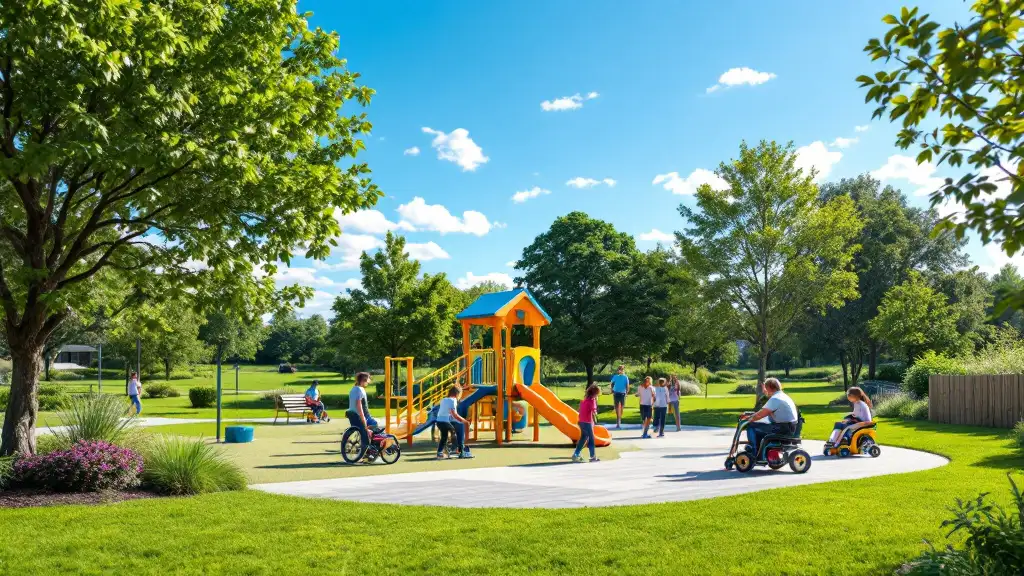
Introduction to Respite Care Services in the Context of Developmental Disabilities
Respite care offers essential short-term relief for families and caregivers supporting individuals with developmental disabilities. By providing flexible, tailored support options, DDD programs aim to ease caregiver burden, promote well-being, and foster community participation for individuals with disabilities. This article explores the scope, eligibility, types, funding, and benefits of respite services covered under DDD, emphasizing its role in enhancing quality of life for both care recipients and their families.
Scope and Coverage of Respite Care Services under DDD

What respite care services are covered under Developmental Disabilities Division (DDD) programs?
Respite care services within the Developmental Disabilities Division (DDD) framework encompass short-term support designed to relieve primary caregivers from their duties. These services include both in-home and out-of-home options, such as temporary stays in licensed residential settings or community-based programs. Support includes assistance with daily routines, personal care, physical help, and protective supervision tailored to each person’s individual needs as detailed in their Individual Service Plan (ISP).
Providers offering these services must meet specified standards, including appropriate training, background checks, and licensing requirements. Services like transportation and care coordination may also be part of the respite package. The primary goals are to promote individual health, safety, personal choice, and community inclusion, with a strong focus on positive behavior support strategies. Importantly, the arrangement emphasizes that room and board are only included when provided by approved providers, and overnight care is limited to licensed entities to ensure safety and quality of care.
Who is eligible to receive respite care through DDD programs?
Eligibility for respite services under DDD is primarily for individuals with developmental disabilities residing in family or community settings. Candidates must have an active ISP and qualify under program-specific criteria, which typically exclude those living in adult foster homes or assisted living facilities.
To access these benefits, caregivers or guardians must apply through local Area Agency on Aging (AAA) offices or similar organizations. The application process involves reviewing care needs, verifying income eligibility, and establishing that services are necessary to support the individual’s well-being. Eligible recipients often include persons with complex medical or behavioral needs, with priority sometimes given to low-income families, minority groups, rural residents, and relatives caring for children or adults with disabilities.
How can caregivers access respite care services covered by DDD?
Caregivers seeking respite support through DDD should start by engaging with their assigned case manager or support coordinator. These professionals provide guidance on available programs, eligibility requirements, and assist with the necessary paperwork.
Once eligibility is confirmed, caregivers can explore options such as in-home respite, where support is provided in the family’s home, or out-of-home services at licensed facilities. It’s beneficial to research local service providers, such as community agencies, hospitals, or nonprofit organizations specializing in disability support.
Clear communication of care needs, care routines, and preferences is critical for developing an effective respite plan. Caregivers should also consider scheduling options, addressing fee aspects—many services are covered by Medicaid or state-funded programs—and ensuring that all regulatory requirements are met for safe and appropriate care.
What types of respite care are included under DDD coverage?
The DDD program offers a variety of respite options to suit diverse needs:
| Type of Respite | Description | Typical Settings | Additional Notes |
|---|---|---|---|
| In-Home Respite | Support provided within the individual’s or family’s home, including personal care, supervision, and assistance with daily activities | Private homes, family residences | Focuses on personalized support, can be tailored to medical or behavioral needs |
| Residential Respite | Temporary stays in licensed residential or community-based facilities that serve as short-term homes | Licensed group homes, residential centers | Suitable for individuals needing a higher level of supervision or medical care |
| Group Respite | Care in community settings or group environments that promote socialization and skill-building | Day programs, community centers | Offers peer interaction and community integration |
| Voucher Respite | Funds provided to families to purchase direct care or recreational services from approved providers | Various community sites | Flexible and family-directed; supports a range of activities |
| Lifespan Respite Program | Emergency vouchers and resources for ongoing support, linking caregivers with broader services | Multiple settings | Designed for urgent needs or long-term resource planning |
What funding options are available for respite care under DDD?
Financial support for respite services comes primarily through Medicaid waivers, which often cover a substantial part of the costs for eligible individuals. State-funded programs, administered through specific grants or allocations, may also provide direct vouchers or subsidies.
Additional resources include Lifespan Respite Grants, which support emergency relief and extended services. Some families benefit from military benefits, such as VA coverage, especially for veterans with disabilities.
Families are encouraged to consult with their local DDD office or advocacy organizations to understand the specific funding options available in their area and navigate the application process effectively.
What benefits does respite care provide for caregivers and individuals with developmental disabilities?
Respite care brings numerous positive impacts. For caregivers, it offers essential relief, reducing stress and preventing burnout. It enables caretakers to attend to personal health, social activities, or rest, enhancing their overall well-being.
For individuals with developmental disabilities, respite services foster socialization, skill acquisition, and environmental enrichment. They gain access to diverse settings that promote independence and community engagement.
Moreover, regular respite can improve family dynamics, strengthen relationships, and ensure continuity of care. It helps maintain a balanced, healthy life for both caregivers and those they support, ultimately contributing to higher quality of life and sustained, community-based support.
Types and Settings of Respite Care Supported by DDD

What types of respite care are included under DDD coverage?
Under the Division of Developmental Disabilities (DDD) program, respite care encompasses several variations designed to meet diverse needs. These include in-home respite, residential respite, group respite, voucher respite, and specialized programs like the Lifespan Respite Program.
In-home respite involves trained staff providing support directly in the individual’s or family’s home. Services may include supervision, personal care, and help with daily routines, offering comfort through familiar surroundings.
Residential respite takes place in licensed community-based or residential settings, where individuals receive care in a safe, supervised environment. This option affords a change of scenery and socialization opportunities.
Group respite occurs in community or site-based environments, serving multiple individuals simultaneously. This setting promotes social skills, community integration, and interaction with peers.
Voucher respite provides families with funds that can be used to purchase specific services like direct care or recreational activities, allowing families to tailor supports to their unique needs.
The Lifespan Respite Program offers emergency vouchers and helps connect caregivers with ongoing resources, ensuring immediate relief during crisis situations.
Overall, these respite options are tailored to support both the individual with developmental disabilities and their caregivers, fostering relief, community involvement, and improved quality of life.
Organizational Structure and Support Systems within DDD Respite Programs

How is respite care structured within DDD programs?
Respite care within Division of Developmental Disabilities (DDD) programs operates through a coordinated network of state and local agencies dedicated to supporting individuals with developmental disabilities and their families. These agencies are responsible for establishing and enforcing standards for provider qualifications and safety, ensuring that services delivered meet rigorous quality benchmarks. They collaborate with community-based organizations, residential facilities, and individual caregivers to provide a wide array of respite options tailored to specific needs.
A typical structure emphasizes creating personalized care plans that involve family input and community integration, aiming to deliver safe and meaningful respite experiences. The ARCH National Respite Network and similar organizations serve as vital partners, facilitating access, provider training, and ongoing service monitoring. Through this organized framework, families can access respite services in familiar, safe environments that promote well-being and continuity of care.
The systematic approach ensures that services are not only accessible but also responsive and adaptable, fostering long-term stability for both individuals and their caregivers.
Supporting the Well-Being of Caregivers and Families through Respite

What benefits does respite care provide for caregivers and individuals with developmental disabilities?
Respite care offers vital short-term relief for caregivers of individuals with developmental disabilities, helping to reduce stress and prevent burnout. Caregivers often face ongoing physical and emotional demands, and having access to respite allows them to take necessary breaks, attend to personal needs, or engage in social and recreational activities. This support promotes mental and physical health, fostering resilience and emotional well-being.
For the individuals receiving care, respite services create opportunities for socialization, skill development, and environmental change. These services can be customized to match specific needs, whether in the home, day programs, or residential facilities. They accommodate complex medical or behavioral conditions, ensuring continuity of high-quality care. Funding for respite is available through various sources such as Medicaid, state programs, or private pay. Overall, respite care sustains caregivers’ capacity to support their loved ones while enhancing the individuals' independence and enjoyment of life.
How does respite care support long-term caregiver stability and health?
Regular access to respite care plays a crucial role in maintaining the long-term stability and health of caregivers. Scheduled or emergency respite breaks prevent chronic stress, exhaustion, and emotional strain, which are common risks associated with continuous caregiving. By providing these essential short pauses, respite services help preserve mental health, reduce feelings of guilt or anxiety, and promote overall well-being.
In addition to mental health benefits, respite care facilitates physical health by giving caregivers time for medical appointments, exercise, and rest. It also encourages self-care routines, which are vital for sustaining their caregiving role over time. Family resilience is strengthened through respite, as it helps foster positive relationships and reduces conflicts often associated with caregiver strain. These combined effects support caregivers in maintaining their roles effectively, ensuring that they can provide ongoing care without compromising their own health.
What role does respite care play in promoting social inclusion and independence for individuals with developmental disabilities?
Respite care significantly advances social inclusion and independence for individuals with developmental disabilities. Through out-of-home and community-based programs, these individuals get opportunities to participate in recreational activities, social outings, and skill-building experiences beyond their usual routines. Such exposure nurtures a sense of community belonging and boosts confidence.
Personalized respite plans are tailored to each individual’s developmental and medical needs, encouraging skill development in communication, daily living, and socialization. Support staff assist in fostering independence by encouraging self-help skills and facilitating interactions with peers and community members. These activities not only enhance self-esteem but also promote autonomy, fostering a transition toward greater independence.
Participation in diverse community settings helps individuals form meaningful relationships, enhances their social skills, and broadens their experiences. The cumulative effects lead to increased independence, self-confidence, and a more active, fulfilling life, which are critical to their long-term growth and integration into society.
| Aspect | Benefits | Additional Details |
|---|---|---|
| Caregiver well-being | Stress reduction, burnout prevention, improved mental and physical health | Regular respite sustains long-term caregiving capacity |
| Family resilience | Strengthened relationships, reduced conflicts | Respite creates positive caregiving environments |
| Social inclusion for individuals | Opportunities for socialization, skill development | Access to community activities and diverse settings |
| Independence | Increased self-esteem, autonomy, community integration | Personalized plans support developmental needs |
| Funding sources | Medicaid, state programs, private pay | Availability varies based on location and eligibility |
| Types of respite | In-home, out-of-home, emergency, planned | Flexibility to meet specific needs |
Respite care remains a vital resource for families, offering relief that benefits the physical and emotional health of caregivers while fostering growth, independence, and community engagement for individuals with developmental disabilities.
Empowering Families and Supporting Community Inclusion
Respite care under DDD programs is a fundamental resource that not only provides immediate relief to caregivers but also promotes long-term well-being and independence for individuals with developmental disabilities. Through comprehensive assessment, individualized support, and robust provider standards, these services ensure safety, quality, and accessibility. As a vital component of community-based care, respite services foster resilience, reduce stress, and facilitate social inclusion—ultimately strengthening families and enabling individuals with disabilities to thrive in their communities. Ongoing investment and awareness are essential to expand these vital supports, ensuring every family can access the respite services they need for a healthier, more inclusive society.
References
- What Is Respite Care? | National Institute on Aging
- Respite Care for Developmental Disabilities - Number Analytics
- [PDF] STEPS TO RESPITE CARE
- Understanding Respite Care for Children - Entrust Disability Services
- Respite - New York State Office for the Aging
- Respite Go Bag : Resources - The Arc of New Jersey Family Institute
- Respite Care for Adults: Recharge & Rejuvenate












